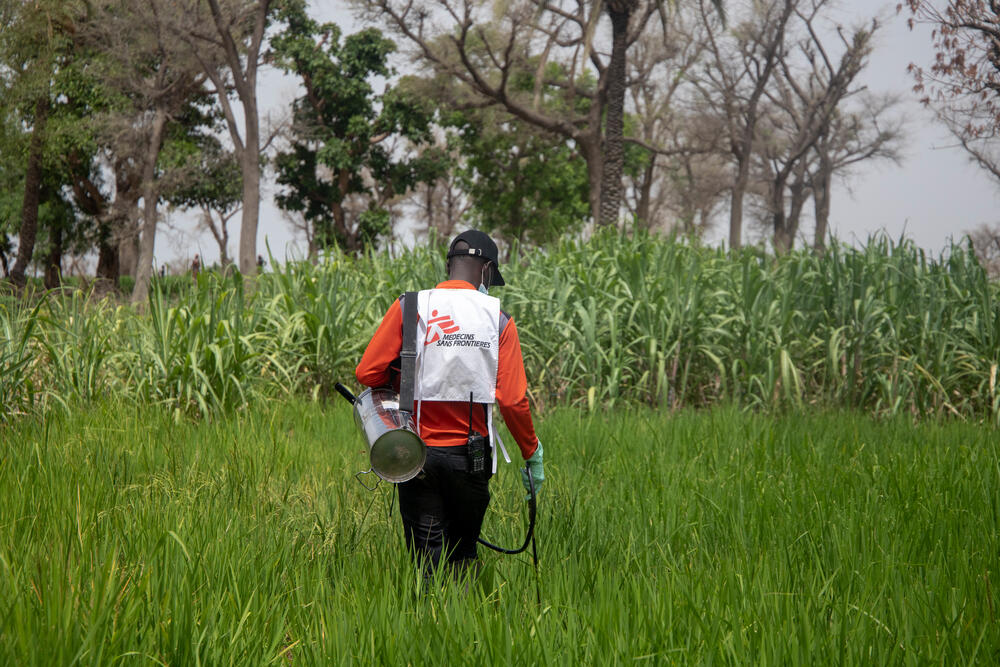Climate emergency: The climate crisis is a health and humanitarian crisis
Médecins Sans Frontières / Doctors Without Borders (MSF) has long responded to some of the world’s worst medical and humanitarian crises.
Many of the areas in which we work are in the most climate-vulnerable settings in the world, and our teams provide care for people experiencing the health impacts of the climate emergency first-hand.
It is very clear that this crisis hits people in the most vulnerable situations the hardest.
MSF at COP26
This is why we are participating as an official observer at the United Nation’s Federation Convention on Climate Change (UNFCCC) 26th Conference of the Parties (COP26) in Glasgow, Scotland, where world leaders are gathering to update climate action plans to keep the world a safe place to live.
We are there because the needs of the most affected must not be forgotten. It has always been our duty to speak out for those whose voice is not heard, and this is no different. We want to share the concerns of the communities we serve.
We are also there because we need to understand better how we can adapt our humanitarian and medical response in a rapidly changing reality.
Many organisations, institutions and individuals have expertise on climate and environmental issues, and we need to learn from them to make sure our response best fits the needs of tomorrow.
Decarbonising MSF
We are also there because we recognise the scientific warnings and the need for a zero carbon emission trajectory.
Decarbonising our organisation is by no means an easy task, as responding to humanitarian and health crises across the world is carbon intensive. But we have started, and are committed, to reducing our carbon footprint.
We want to learn from others who have different expertise and experience, and we want to reflect together how to deliver aid in a more sustainable way.
The climate emergency aggravates existing vulnerabilities and humanitarian situations. For example, in Niger, changing rain patterns are impacting food production and infectious diseases such as malaria.
This comes on top of recurring epidemics and food insecurity linked to demographic pressure and land use, as well as violence and displacement. The deadly combination of malaria and malnutrition takes a heavy toll on children under five.
Threat to human health
In many MSF project locations, our medical humanitarian teams are responding to situations that are linked to the changing environment.

Help us prepare for the next emergency
This includes increasing numbers of people with infectious diseases such as malaria, dengue fever and cholera, as a result of changing rainfall and temperature patterns; increasing cases of zoonotic diseases due to increased pressure on the environment; and more frequent extreme weather events, such as cyclones and hurricanes, and drought, which can contribute to/cause malnutrition.
The climate emergency is a great threat to human health, particularly in places where people already lack access to or are excluded from, basic healthcare.
Humanitarian organisations respond to crises regardless of the cause. But their efforts in responding will not make up for the failures to act on the causes of some of these crises by our political leaders.
Concrete political action to implement solutions to limit global warming is needed to prevent disastrous humanitarian consequences.
MSF and the climate crisis
MSF has its own part to play in tackling the climate crisis. In June 2019, our International General Assembly (IGA) came together and agreed to work towards this goal.
Some of the areas we are focusing on include:
- Developing tools to measure and monitor our environmental footprint
- Reducing our electricity and fuel use, air transport and waste
- Ensuring that we are still able to deliver rapid and life-saving medical aid to people in need
